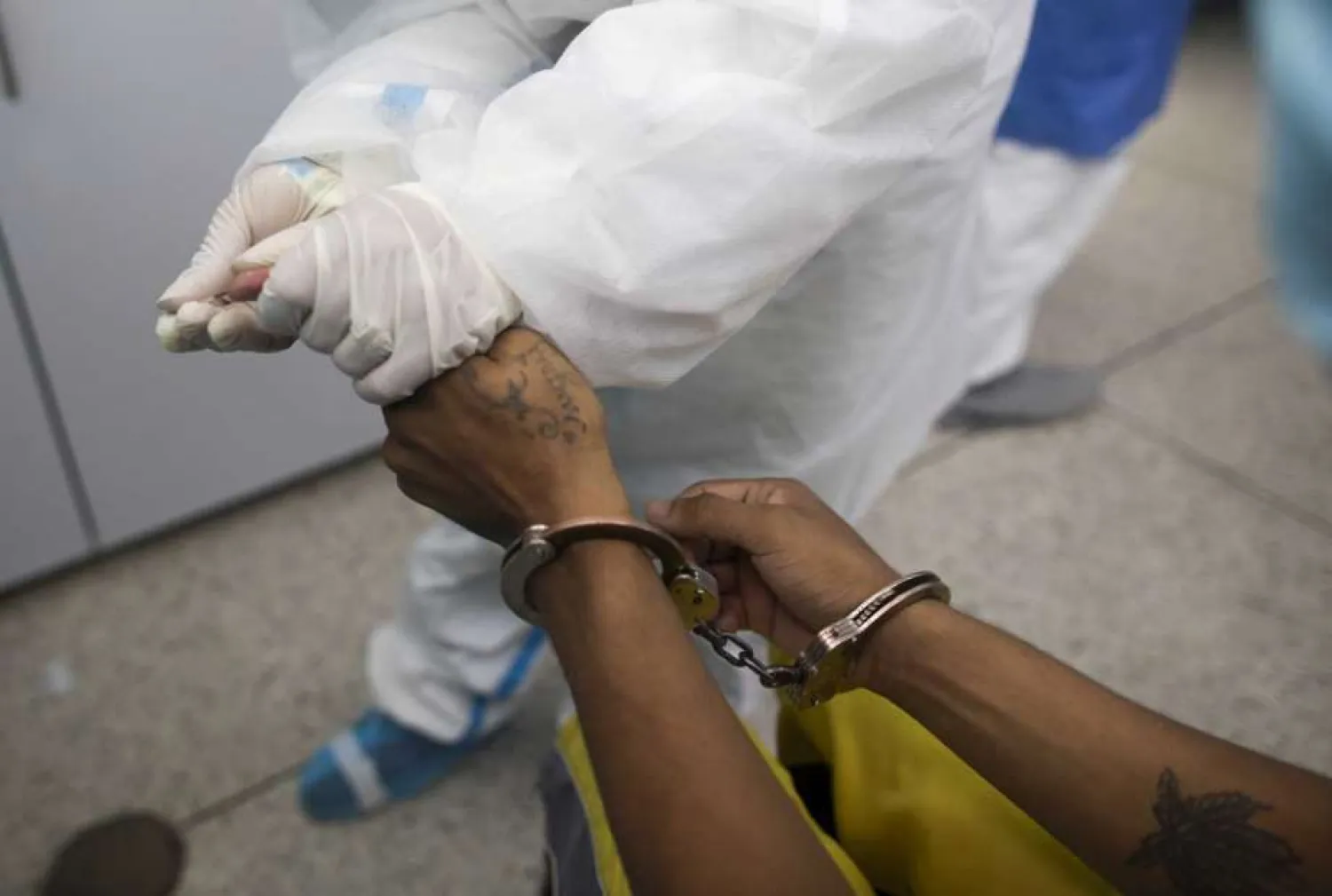Venezuelan security forces and authorities under President Nicolás Maduro have used the coronavirus as an excuse to crack down on dissenting voices on social media and even in private messages, Human Rights Watch reported Friday.
The New York-based rights group said Venezuelan authorities have targeted dozens of journalists, healthcare workers, human rights lawyers and political opponents critical of the government's response to the pandemic.
Some critics have been physically abused to levels bordering on torture, the group said in a report listing 162 such cases from March through June. Human Rights Watch says it verified several complaints through interviews with alleged victims, while also citing reports by Venezuelan media and human rights advocates.
"In Venezuela today, you can´t even share a private message criticizing the Maduro government via WhatsApp without fear of being prosecuted," said José Miguel Vivanco, Americas director at Human Rights Watch.
"The state of emergency has emboldened security forces and armed pro-government groups that already have a record of torture and extrajudicial killings to crack down even more harshly on Venezuelans," Vivanco said.
Venezuela´s Ministry of Communications did not immediately respond to an email from The Associated Press seeking comment. Authorities loyal to Maduro often dismiss critics of its human rights record as outside interests led by the United States interfering in the nation´s internal affairs.
Venezuela was in an economic and political crisis before the pandemic. Maduro has come under heightened international pressure to step down since early 2019, when U.S.-backed opposition leader Juan Guaidó mounted a challenge, claiming the socialist leader illegitimately clings to power following a fraudulent election.
Maduro´s government instituted emergency measures in mid-March shortly after Venezuela´s first coronavirus cases were diagnosed, closing many businesses, limiting travel inside the country, and grounding commercial air travel.
Officials so far have reported roughly 350 coronavirus deaths and 42,000 illnesses, but medical workers and government critics say that is an undercount due to the lack of testing.
Human Rights Watch said Maduro´s government often evokes an "overly broad" anti-hate law approved in 2017 as an instrument for its crackdown, which is enforced by a judicial system lacking independence from Maduro.
The group cited the case of Iván Virgüez, a 65-year-old human rights lawyer arrested in mid-April after a Facebook post critical of how migrants returning to Venezuela were held in quarantine centers.
Over the two days he was in custody, police handcuffed him for two hours under the sun to a metal tube 2 feet off the ground, Human Rights Watch said, adding that he was denied a bathroom for 26 hours.
Virgüez was charged with public disturbance, contempt, defamation of authorities, and instigation of rebellion. He remains under house arrest, allowed to leave his home only for medical visits, Human Rights Watch says.
Hospital worker Andrea Sayago in April sent colleagues a warning on the WhatsApp messaging service of their first coronavirus cases. Photos of test results she sent ended up on social media and hospital administrators forced her to resign, saying her message constituted "terrorism," the human rights group reported.
Venezuela's intelligence police later questioned her for several hours, and she's been charged with misuse of privileged information and put under house arrest pending trial, Human Rights Watch said.
Security forces in March entered the home of Darvinson Rojas, a 25-year-old freelance journalist, and activist, without a search warrant, claiming an anonymous tip reporting a coronavirus case. Human Rights Watch said Rojas tweeted a tally of coronavirus cases collected from various official sources, which gave a total number of cases higher than the ones authorities reported.
The organization said authorities roughed up Rojas' family members, seized his cellphone and computer, and detained him for nearly two weeks. He's charged with inciting hatred for publishing false information aimed at destabilizing the government.









